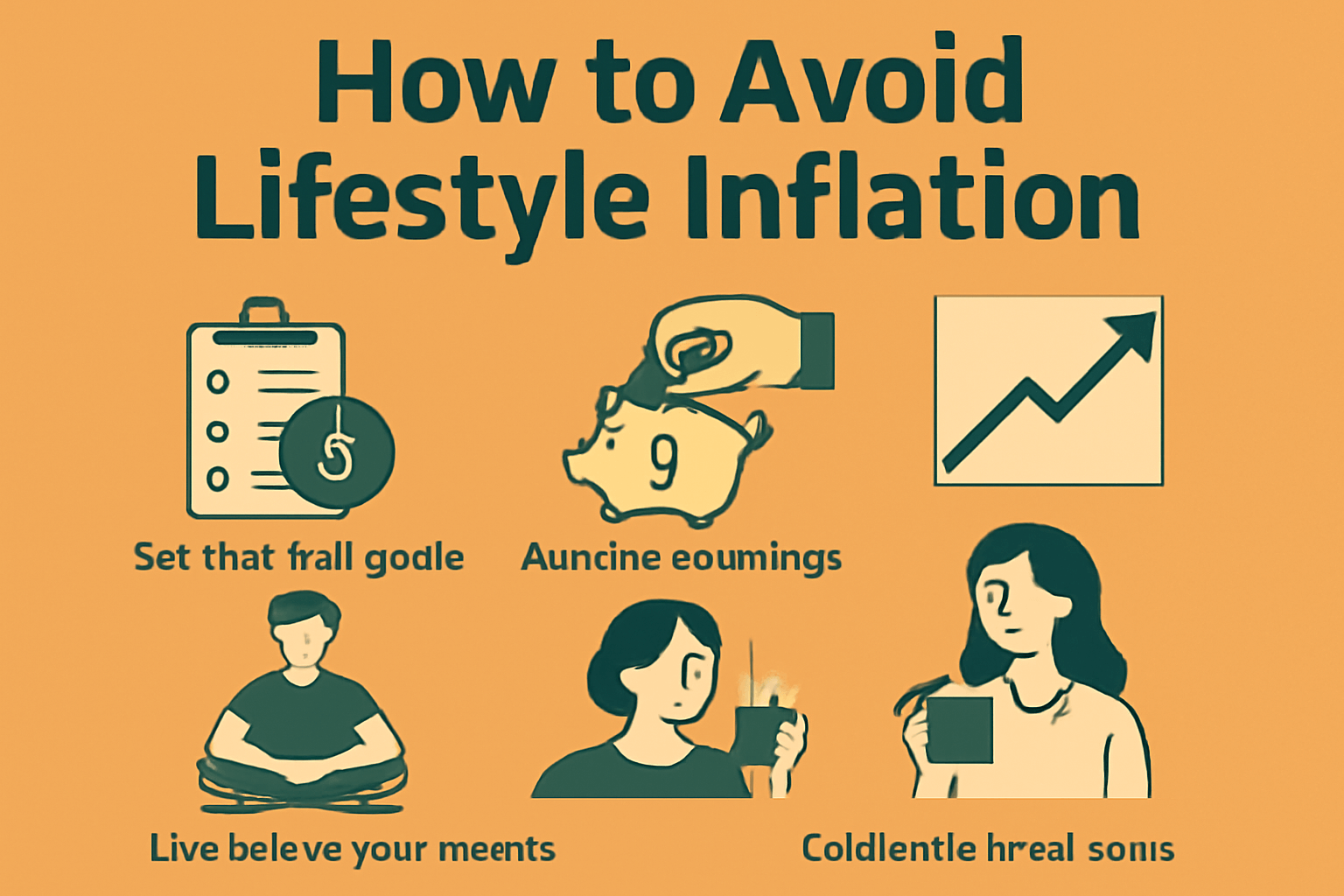Lifestyle inflation, also known as “lifestyle creep,” occurs when your spending increases as your income rises. While it may seem tempting to upgrade your lifestyle after a salary increase or windfall, lifestyle inflation can hinder your financial goals and prevent you from building wealth over time. This article will guide you through understanding lifestyle inflation and offer practical tips to avoid it, so you can continue living below your means and grow your savings.
1. Understand What Lifestyle Inflation Is
Lifestyle inflation refers to the tendency to increase your spending in line with an increase in income. For example, after getting a raise or bonus, you might find yourself upgrading to a bigger house, buying a luxury car, dining out more frequently, or indulging in expensive hobbies.
While enjoying your newfound wealth is natural, lifestyle inflation can eat away at the benefits of a higher income, leaving you with little to show for your increase in earnings. Instead of allowing your lifestyle to expand with your income, it’s important to prioritize your financial goals and use the extra money to build wealth.
2. Be Aware of the Temptation to Upgrade Your Lifestyle
The first step in avoiding lifestyle inflation is to be aware of the temptation to spend more as your income grows. Recognize that just because you earn more doesn’t mean you need to increase your expenses proportionally. Many people fall into the trap of believing that their quality of life is tied to their spending, but it’s the opposite: true financial freedom comes from managing your money wisely, not from consuming more.
3. Set Financial Goals and Stick to Them
A great way to combat lifestyle inflation is to set clear financial goals. When you have a goal, whether it’s saving for retirement, building an emergency fund, or buying a house, it’s easier to avoid unnecessary spending. The key is to allocate any extra income toward your goals rather than immediately upgrading your lifestyle.
Here are some financial goals to consider:
- Retirement savings: Contributing more to your retirement accounts ensures you are building wealth for your future.
- Emergency fund: Boosting your emergency fund will give you peace of mind and security.
- Debt repayment: If you have high-interest debt, use your extra income to pay it off faster.
- Investing: Putting your money into investments allows it to grow over time, providing a secure financial future.
4. Automate Your Savings and Investments
One of the easiest ways to avoid lifestyle inflation is to automatically allocate your extra income to savings or investments. Set up automatic transfers from your checking account to a savings or investment account as soon as you receive your income.
By automating your savings, you remove the temptation to spend the extra money on non-essential purchases. This helps ensure that your financial goals stay a priority and that you continue building wealth over time.
5. Prioritize Financial Independence Over Material Goods
Instead of focusing on acquiring more material possessions, focus on building your financial independence. Financial independence means having enough assets or investments to cover your living expenses without needing to work for a paycheck.
To achieve this, direct any salary increases, bonuses, or other windfalls toward increasing your savings, paying down debt, and investing in income-generating assets. The more you prioritize your financial independence, the less likely you are to fall into the trap of lifestyle inflation.
6. Live Below Your Means
Living below your means is the most effective way to combat lifestyle inflation. This doesn’t mean living a life of deprivation; rather, it means making mindful choices about your spending. Avoid splurging on unnecessary luxuries, and focus on the things that truly bring you joy and add value to your life.
Here are some tips to help you live below your means:
- Track your spending: Create a budget and track your expenses to identify areas where you can cut back.
- Focus on needs over wants: Prioritize essential expenses like housing, utilities, and groceries, and limit discretionary spending.
- Enjoy simple pleasures: Find joy in low-cost activities such as cooking at home, exercising outdoors, or spending time with family and friends.
7. Celebrate Wins Without Overspending
It’s natural to want to reward yourself after reaching a financial milestone or achieving a personal goal. However, it’s important to celebrate your wins without overspending. Instead of splurging on expensive items or experiences, find ways to celebrate that are more aligned with your financial goals.
For example, rather than buying an expensive gift for yourself after receiving a raise, treat yourself to a day off, a home-cooked meal, or a weekend getaway that doesn’t break the bank. Celebrating small wins in a thoughtful way can help you stay on track with your financial goals while still enjoying life.
8. Reassess Your Goals and Spending Habits Regularly
As your income grows, it’s important to reassess your financial goals and spending habits regularly. Evaluate whether your current lifestyle is aligned with your long-term goals and make adjustments as necessary.
For example, if your expenses are creeping up, you may need to reassess whether the extra spending aligns with your values and financial priorities. Regularly revisiting your goals will help you stay on course and ensure that lifestyle inflation doesn’t undermine your progress.
Conclusion: Build Wealth, Not Debt
Avoiding lifestyle inflation is key to building long-term wealth and financial security. By setting clear goals, automating your savings, and living below your means, you can prevent lifestyle inflation from eating away at your financial progress. Remember, the more you focus on saving, investing, and prioritizing your long-term goals, the less likely you are to fall into the trap of spending more as you earn more.
